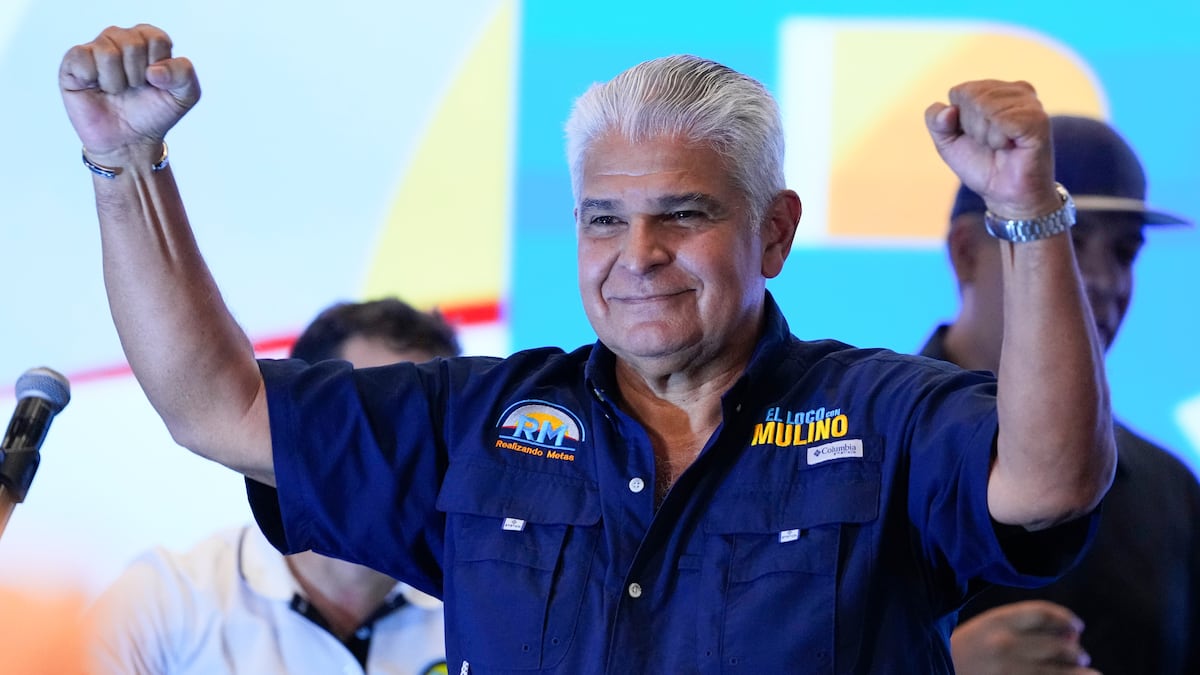Jose Raul Mulino wins election in Panama run by corruption-convicted former president Martinelli

This Sunday’s presidential election in Panama, the region’s youngest democracy, saw former President Ricardo Martinelli maintaining his popularity from start to finish. Just before 9 p.m., the electoral court announced the victory of right-winger José Raúl Mulino (Chiriqui, 64), replacing the former president convicted of money laundering, receiving the same level of support as anticipated in the election. , With 85% of the tables counted, the Realizing Goals Party candidate received 34.4% of the vote, while the anti-system candidate Ricardo Lombana received 25% and former President Martín 16%. The ruling party José Gabriel Carrizo was relegated to a very poor sixth place (5.76%), still affected by the very low popularity of President Laurentino Cortizo, the worst historical result for the Democratic Revolutionary Party (PRD).
In his victory speech, the combative Mulino claimed, “We got here with the majority vote of the people of Panama, whoever it hurts, it hurts.” He envisioned a government conducive to investment and private enterprise, but without forgetting the most vulnerable sections of society, “who are hungry and need drinking water throughout the country,” whom he considered his voter base. Declaring an end to “political persecution” in the country, the now President-elect said, “I am not motivated by any sense of revenge against anyone, despite what they did to me in this campaign.”
The campaign apparently took place in the shadow of Martinelli, a populist leader who aspired to return to the presidency but was extradited from the United States after he was sentenced to more than 10 years in prison. Mulino, who has established himself as an unexpected favorite, met the former president on Sunday, the same election morning, at the Nicaraguan embassy in Panama City, where he has been hiding since February to avoid an arrest warrant against him. In a short video released by their advisers, they are seen embracing each other at the diplomatic headquarters. The former president’s hat bears the same motto on the candidate’s shirt that is ubiquitous in campaign advertising: “El loco con Mulino”, in reference to the nickname by which everyone knows Martinelli. The Supreme Court of Justice finally removed the uncertainty that had hung over the elections until last Friday by endorsing Mulino’s appointment, which was essentially Martinelli’s vice-presidential formula.
Although the disqualification apparently prohibited even participating in the campaign, Martinelli continued to very actively proselytize from the diplomatic headquarters to promote Mulino, who was his Minister of Security. The former supermarket magnate ruled Panama between 2009 and 2014 at a time of strong growth and hundreds of millions of dollars of investment in infrastructure. That memory has made him popular despite his problems with the law and being recognized by the United States as a corrupt ruler. Legal entanglements aside, Mulino stuck to a strategy of attracting voters with promises of a return to the good old days.
Without engaging in the debate, Mulino consistently led recent polls, with Lombana and Torrijos, who defended the discourse of national unity, usually finishing second. In the end, it was Lombana of the Other Path Movement (MOCA) who exceeded expectations, although he fell far short of surprising with his anti-corruption speech. In the 2019 elections, he had already achieved an unexpected third place while remaining unknown. When accepting Mulino’s victory, Lombana declared, “We are the main opposition force in the Republic of Panama,” though he reminded that the majority of Panamanians had voted for few other options. And he warned the future president that if he “dare to renegotiate the mining contract or use authoritarian methods to suppress the people, he will find the people in the streets.” In fourth place was former Foreign Minister Romulo Roux (11%) and in fifth place was independent Zulay Rodríguez (6%), pushing ‘Gaby’ Carrizo to sixth place, an unprecedented disaster for the PRD founded by General Omar Torrijos. Was.
In a country that has recently suffered severe drought and mass protests in the context of an economic recession, the next president will have to address fiscal, environmental, immigration and anti-corruption problems, observers believe. Is. Cortizo’s management has increased social tensions, which reached their peak late last year. Then, a contract extension by the Canadian mining company First Quantum Minerals led to a wave of protests that led to the cancellation of the agreement and the definitive closure of the Minera Panama copper mine, which contributes about 5% of the domestic product. used to give . This is added to the water crisis as a result of drought, a problem that affects the operation of the Panama Canal.
Follow all the information from El PAÍS America Facebook And xor in our weekly newspaper,
(Tags to translate)America(T)Latin America(T)Panama(T)ElectionsPanama(T)Central America(T)Electoral campaign(T)Ricardo Martinelli(T)Panama City(T)Politics(T)Martin Torrijos
